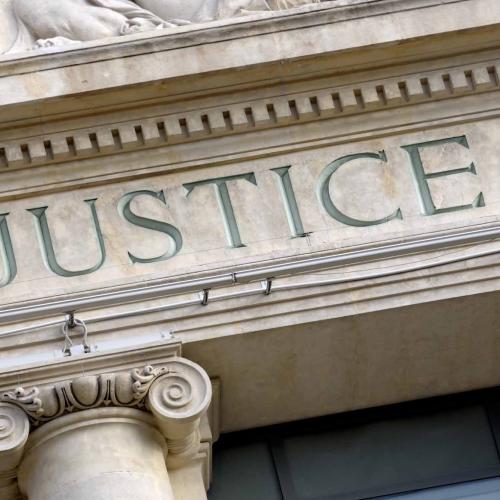The criminal justice system in the United States rests on the foundational principle of due process, which requires that all individuals accused of a crime be treated fairly and with transparency. This principle is enshrined in the Fifth and Fourteenth Amendments to the U.S. Constitution, which guarantee that no person shall be deprived of life, liberty, or property without due process of law. A key component of this guarantee is the obligation of law enforcement agencies to disclose exculpatory evidence—evidence that might exonerate the defendant or reduce their culpability—known as Brady material. The term "Brady material" originates from the landmark Supreme Court case Brady v. Maryland (1963), where the Court held that the prosecution must turn over all exculpatory evidence to the defense.
Despite the clear mandate set forth by the Brady decision, there exists a significant and troubling gap between the legal requirements imposed on law enforcement agencies and their actual practices. Law enforcement leadership frequently fails in their duty of complete candor with the courts, particularly with respect to the investigation, gathering, and disclosure of Brady material. This failure is not merely an administrative oversight; rather, it is a systemic issue that profoundly undermines the due process rights of defendants and erodes the integrity of the criminal justice system.
The Duty of Candor and the Ethical Obligations of Law Enforcement
The duty of candor is a legal and ethical obligation that requires law enforcement officials to be truthful and forthcoming in their dealings with the court. This duty extends beyond the mere avoidance of falsehoods; it encompasses an affirmative obligation to disclose all relevant information, particularly evidence that may be favorable to the defense. The Model Rules of Professional Conduct, which provide a framework for ethical behavior among attorneys and, by extension, law enforcement, emphasize the importance of candor toward the tribunal.
Rule 3.3 of the Model Rules of Professional Conduct states that a lawyer shall not knowingly "fail to disclose to the tribunal legal authority in the controlling jurisdiction known to the lawyer to be directly adverse to the position of the client and not disclosed by opposing counsel." While this rule explicitly applies to attorneys, its underlying principle—complete honesty and transparency—applies equally to law enforcement officers who provide evidence and testimony in criminal cases.
Law enforcement agencies, however, often fall short of this ethical standard. Leadership within these agencies is frequently reluctant to investigate or disclose evidence that could undermine the prosecution's case. This reluctance may stem from a desire to secure convictions, protect officers from scrutiny, or shield the agency from potential liability. Regardless of the motivation, the result is a deliberate and systemic failure to uphold the duty of candor, which has serious implications for the fairness of criminal proceedings.
Brady Material and the Systemic Failure to Disclose
The Brady doctrine requires that prosecutors disclose any evidence favorable to the defendant that is material to guilt or punishment. This obligation is rooted in the principle that justice should not be a game of hide and seek, where the prosecution withholds evidence that could lead to an acquittal or a lesser sentence. The Supreme Court has repeatedly emphasized that the suppression of exculpatory evidence violates the defendant's right to due process.
However, the responsibility for identifying and disclosing Brady material does not rest solely with prosecutors. Law enforcement agencies play a crucial role in this process, as they are often the ones who collect and control access to such evidence. This includes not only physical evidence and witness statements but also information about the credibility and conduct of police officers involved in the case.
In practice, law enforcement agencies frequently fail to fulfill this responsibility. One of the most significant areas of concern is the non-disclosure of information related to officer misconduct, including complaints, disciplinary actions, and use of force reports. Such information can be critical in assessing the credibility of an officer's testimony or in revealing a pattern of behavior that could exonerate the defendant.
The Specific Case of Officer Misconduct
Officer misconduct, which includes actions such as excessive use of force, racial profiling, falsification of reports, and violations of civil rights, is particularly relevant to the Brady obligation. Evidence of misconduct can be pivotal in a criminal trial, as it may directly impact the reliability of the evidence presented by the prosecution, particularly when that evidence is based on the testimony of the officer in question.
Despite the clear relevance of such evidence, law enforcement agencies often fail to disclose it. In some cases, this failure is due to poor record-keeping or a lack of communication between different departments within the agency. More troubling, however, are cases where the non-disclosure is intentional, driven by a desire to protect the officer or the department from negative consequences.
For instance, internal affairs investigations, which are conducted to examine allegations of officer misconduct, often result in findings that could be classified as Brady material. However, these findings are frequently withheld from prosecutors and defense attorneys, either because the agency deems them irrelevant or because they fear the repercussions of exposing systemic issues within the department. This practice not only violates the Brady doctrine but also compromises the defendant's right to a fair trial.
The Impact on Due Process and the Integrity of the Criminal Justice System
The failure of law enforcement leadership to disclose Brady material has far-reaching consequences for the criminal justice system. At its core, this failure undermines the due process rights of defendants, who are entitled to a fair trial based on all available evidence. When law enforcement agencies withhold exculpatory evidence, they effectively tip the scales of justice in favor of the prosecution, depriving the defendant of the opportunity to present a complete and effective defense.
This breach of due process is particularly egregious in cases where the withheld evidence relates to officer misconduct. An officer's credibility is often a key factor in the outcome of a trial, especially in cases that hinge on the officer's testimony or the evidence they have gathered. When the defense is unaware of prior misconduct by the officer, they are unable to challenge the officer's credibility effectively, which can lead to wrongful convictions.
The impact of such wrongful convictions is profound. Innocent individuals may be incarcerated for crimes they did not commit, while the true perpetrators remain free. The ripple effects extend beyond the individual defendant to society as a whole, as public trust in the criminal justice system is eroded. When the public perceives that law enforcement agencies are more interested in securing convictions than in seeking the truth, confidence in the fairness and integrity of the system diminishes.
Judicial Responses and the Need for Reform
The judiciary has recognized the systemic issues related to the non-disclosure of Brady material and has taken steps to address them. Courts have ruled that the failure to disclose exculpatory evidence can result in the reversal of convictions and, in some cases, sanctions against the prosecution. However, these remedies are often applied after the fact, once the damage has already been done. Moreover, they do not address the root cause of the problem: the failure of law enforcement leadership to prioritize transparency and accountability.
Reform is urgently needed to ensure that law enforcement agencies fulfill their Brady obligations consistently and comprehensively. Such reform could take several forms, including:
- Enhanced Training: Law enforcement officers and leaders must be trained on the importance of Brady material and the ethical obligation to disclose it. This training should emphasize the role of transparency in upholding the integrity of the criminal justice system.
- Improved Record-Keeping: Agencies should implement robust systems for tracking and documenting officer misconduct, complaints, and use of force reports. This information should be readily accessible to prosecutors and defense attorneys.
- Independent Oversight: Independent bodies should be established to review law enforcement practices related to the investigation and disclosure of Brady material. These bodies could have the authority to audit internal affairs investigations and ensure that all relevant information is disclosed to the court.
- Stronger Judicial Enforcement: Courts should take a more active role in enforcing Brady obligations, including imposing sanctions on law enforcement agencies that fail to disclose exculpatory evidence. Judges could also require periodic reports from law enforcement agencies on their compliance with Brady requirements.
The failure of law enforcement leadership to uphold their obligation of complete candor with the courts is a significant and troubling issue that undermines the principles of due process and fairness in the criminal justice system. By refusing to investigate, gather, and disclose known Brady material—particularly evidence related to officer misconduct—law enforcement agencies not only violate the rights of defendants but also compromise the integrity of the justice system as a whole.
To address this problem, a concerted effort is needed to reform law enforcement practices and ensure that the duty of candor is rigorously enforced. Such reforms must focus on enhancing transparency, improving accountability, and restoring public trust in the criminal justice system. Only by doing so can we ensure that justice is served, not just in the letter of the law, but in its spirit as well.




